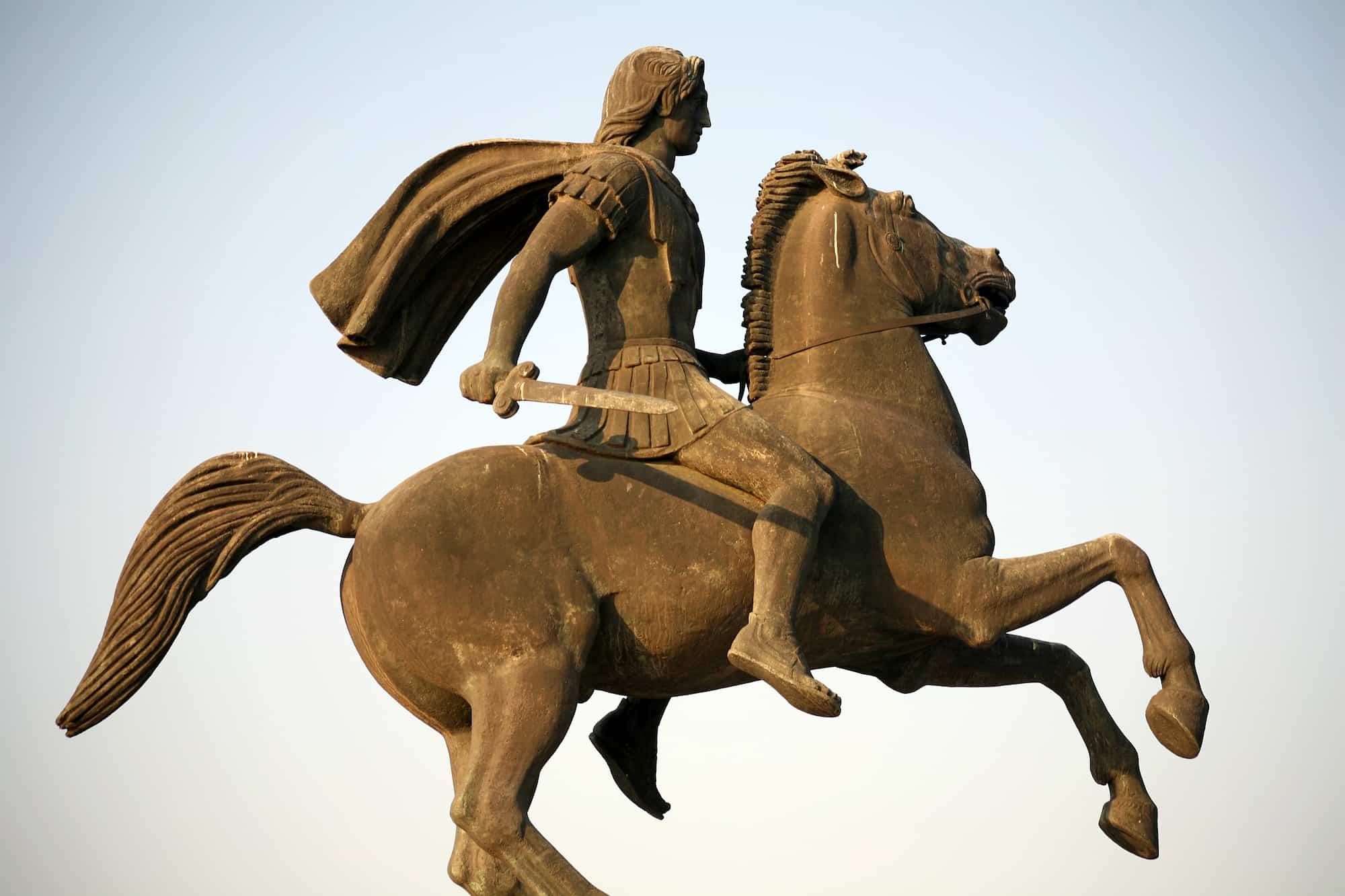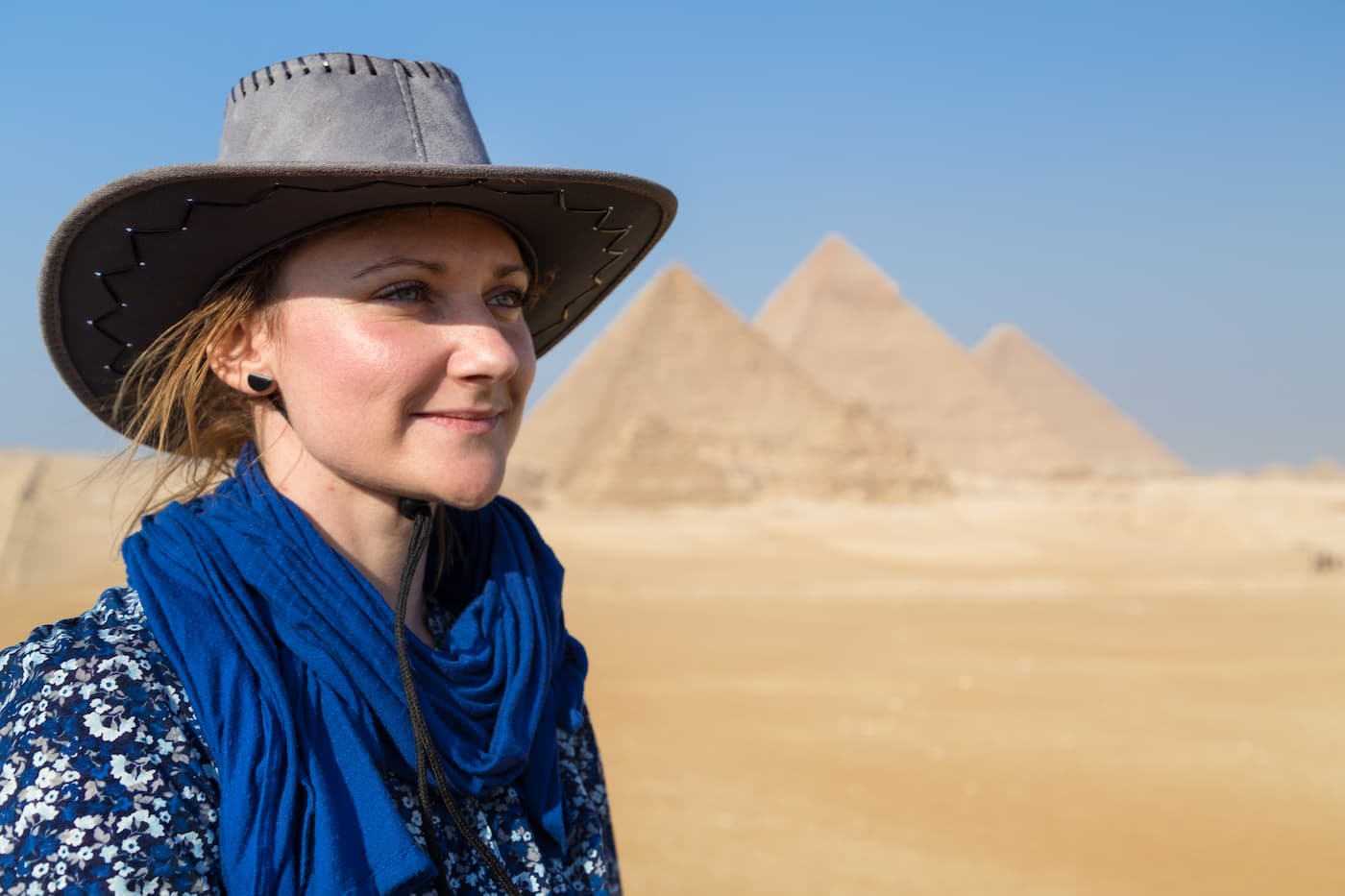Alexander the Conqueror: Facts about the ancient king of Macedon and His Empire
The epithet Alexander the Conqueror was given to Alexander III of Macedon. He was a monarch of the ancient kingdom of Greece, which was situated in Macedon. Alexander III was born in 356 BC and began his reign after his father’s death, Philip II, 20 years later, in 336 BC. Alexander the Third’s era was mainly focused on carrying on a protracted military campaign over western Asian, central Asian, southern, southeastern Asia, and x. North African regions.
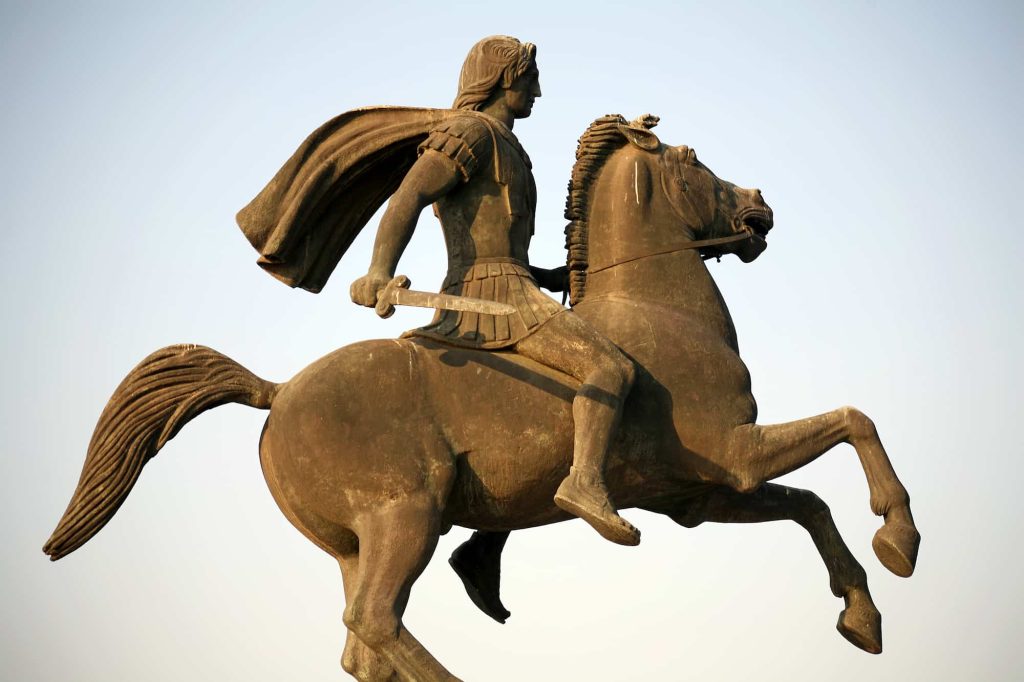
Alexander the Conqueror
He became the lord of one of the most powerful empires in the world, and he was only 30 years old. The empire stretched from Greece to the far northwest of Indian politics. People of those times called him many names, especially when he did not know defeat in battle.
What was his childhood like?
On 20 July 356 BC, Alexander the Third was born at the royal residence of the capital of Macedon – Pella. His father in his time was Macedon king Philip the Second, and his 4th wife, his mother, Olympias (who was the only daughter of the king of Epirus Neoptolemus I), even though Philip had seven or even eight better social wives, Olympias had that place as the main wife. Just like her son’s biological mother.
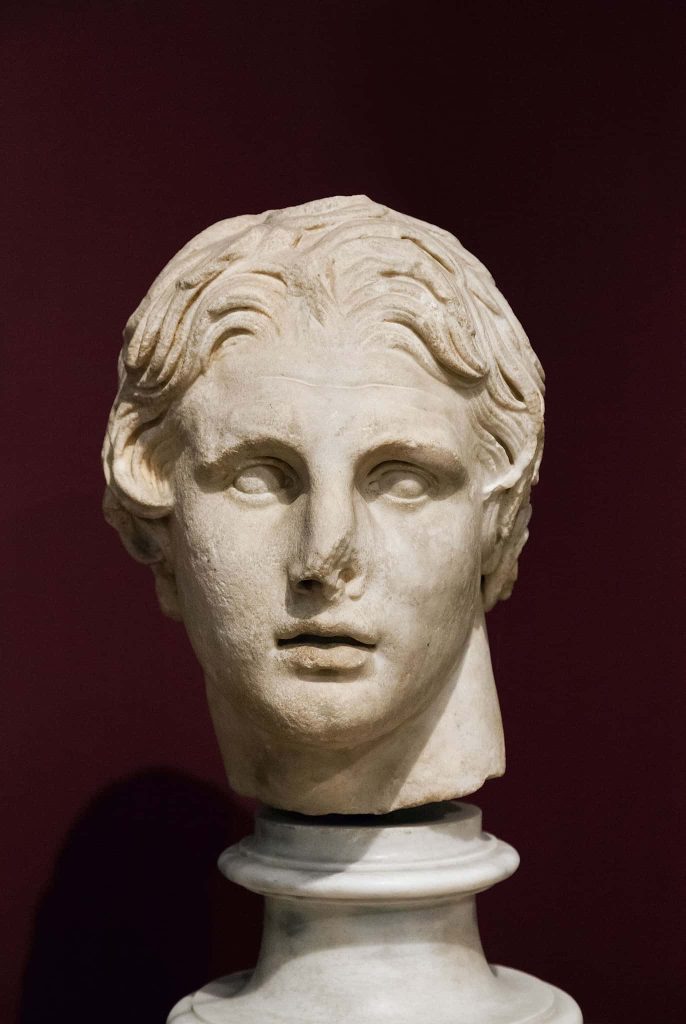
Alex The Great portrait Istanbul Archaeological Museum
In his early years, Alexander was raised by a nurse, Lanike, the sister of Alexander’s future general, Cleitus the Black. Later in his childhood, the strict Leonidas and Lysimachus of Acarnania taught Alexander. Alexander was raised in the manner of noble Macedonian youths because he learned to read, play the lyre, ride, fight, and hunt.
When Alexander was ten years old, a trader from Thessaly brought Philip a horse, which he offered to sell for thirteen talents. The horse refused to be mounted, and Philip ordered it away. Alexander, however, noticed the horse’s fear of its own shadow. Then he succeeded in taming the horse. Plutarch stated that Philip was very happy and bought the horse for his son because he was courageous and ambitious. Alexander named this horse Bucephalas, meaning “ox-head”. Bucephalas carried Alexander as far as India. When the animal died, Alexander named a city after him, Bucephala.
The Education Of Alexander The Conqueror
When Alexander was 13, Philip began to search for a tutor. Then he thought of such academics as Isocrates and Speusippus, who offered to resign from his stewardship of the Academy to take up the post. Philip chose Aristotle in the end and provided the Temple of the Nymphs at Mieza as a classroom. Philip started to rebuild Aristotle’s hometown of Stageira, which Philip had damaged, in return for teaching Alexander. So Philip bought and freed the ex-citizens who were slaves, or pardoned those who were in exile.
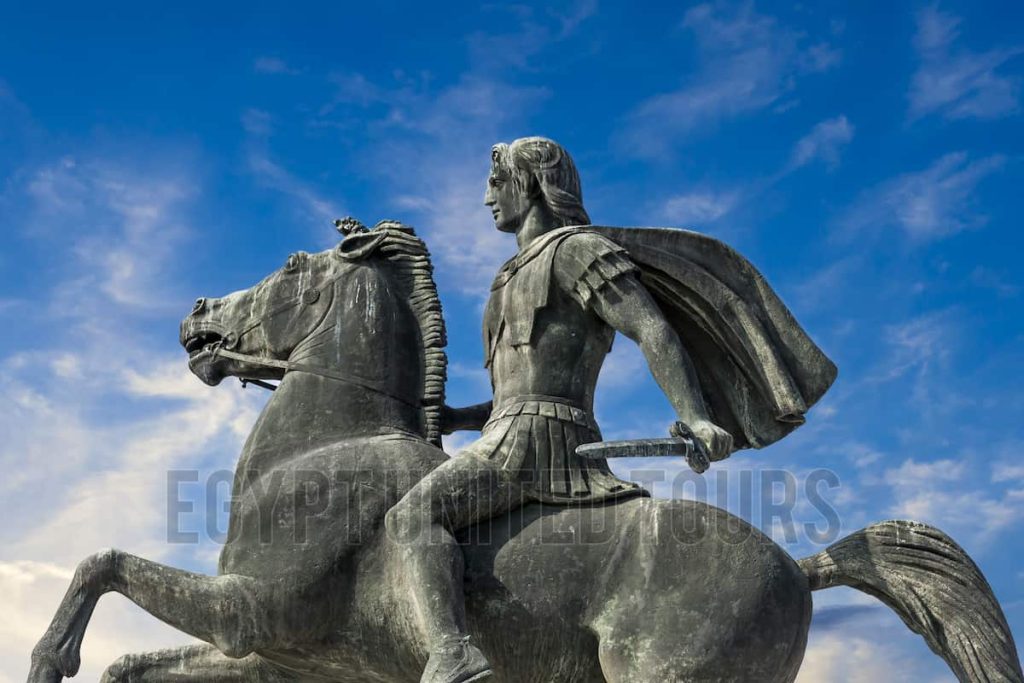
Mieza was a boarding school for Alexander and the children of Macedonian nobles, such as Ptolemy, Hephaestion, and Cassander. Many of these students would become his friends and future generals. Aristotle taught the Great and his companions about medicine, philosophy, morals, religion, logic, and art. Under Aristotle’s tutelage, Alexander had a passion for the works of Homer, in particular the Iliad. Aristotle gave him an annotated copy, which he later carried on his campaigns.
In his youth, Alexander knew Persian exiles at the Macedonian court, who received the protection of Philip II for several years as they opposed Artaxerxes III. Among them were Artabazos II and his daughter Barsine, who was the future mistress of Alexander, and resided at the Macedonian court from 352 to 342 BC. There was also Amminapes, the future satrap of Alexander, and a Persian nobleman named Sisines. This gave the Macedonian court a good knowledge of Persian issues and may even have influenced some of the innovations in the management of the Macedonian state.
Alexander the Great’s Regency of Macedon
At the age of 16, Alexander’s education ended. Philip II had had a war against the Thracians to the north, which left Alexander as regent and heir. During Philip’s absence, the Thracian tribe of Maedi revolted against Macedonia. Alexander responded quickly and drove them from their territory. The territory was colonized. He founded a city and named it Alexandropolis.
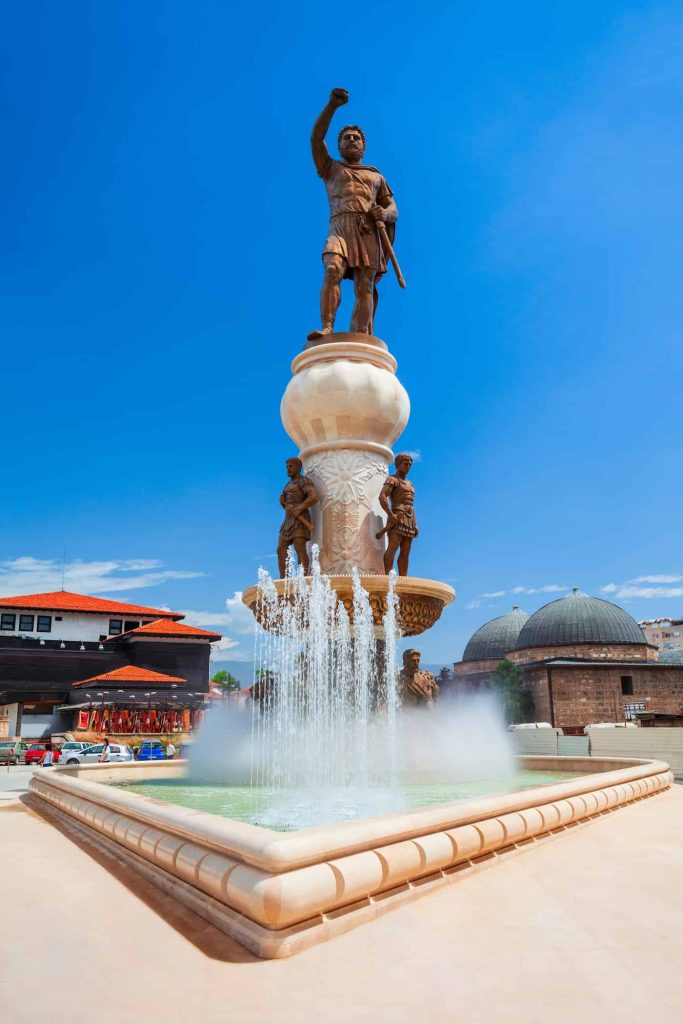
Philip II
When Philip had come back, it was Alexander’s turn to go to southern Thrace with a small army to contain the rebellions in that region. In another incident, Alexander saved the life of his father while he was on an expedition against the Greek city of Perinthus. Many antagonisms with the city of Amphissa, which began to possess the lands surrounding the temple of Apollo in Delphi instead of working pastures without problems at home, gave Philip an extra chance to work with problems in Greece. His presence unwanted in Greece, Philip was left in Thrace. Alexander, who then received the directive to collect troops for a tour of southern Greece.
Philip and his army joined his son in 338 BC, and they marched south through Thermopylae. Then they took it after resistance from its Theban garrison. They went on to occupy the city of Elatea. The Athenians, led by Demosthenes, voted to seek an alliance with Thebes against Macedonia. Both Athens and Philip sent embassies to win Thebes’s favour, but Athens won the contest. Philip marched on Amphissa and captured the mercenaries sent there by Demosthenes. Philip then returned to Elatea and sent a final offer of peace to Athens and Thebes, who both rejected it.
The Conflict Over the Rule
Philip returned to Pella and fell in love; and in 338 BC, he married Cleopatra Eurydice, the niece of one of his generals, Attalus. Such a marriage made Alexander’s position as heir less secure, as any son born to Cleopatra Eurydice would have been the rightful, fully Macedonian heir. Alexander, on the other hand, was termed heir only half-Macedonian.

In 337 BC, Alexander escaped Macedon with his mother. However, Philip never intended to disown his politically and militarily trained son. So, Alexander returned to Macedon after six months due to the efforts of a family friend, Demaratus, who mediated between the two parties.
After the death of Philip II, He became the king on the spot by the nobles and army at the age of 20. Alexander eliminated potential rivals to the throne at the beginning of his reign.
Philip’s death caused revolts in many states, like Thebes, Athens, Thessaly, and the Thracian tribes north of Macedon. When Alexander heard of these revolts, he responded quickly. Alexander mustered 3,000 Macedonian cavalry and rode south towards Thessaly. When the Thessalians awoke the next day, they found Alexander in their rear and promptly surrendered, adding their cavalry to Alexander’s force.
Destruction of Thebes
While Alexander campaigned north, the Thebans and Athenians rebelled once again. Alexander immediately headed south. While the other cities again hesitated, Thebes decided to fight. The Theban resistance was ineffective, and Alexander damaged the city and divided its territory between the other Boeotian cities. The end of Thebes cowed Athens, leaving all of Greece temporarily at peace. He then set out on his Asian campaign, leaving Antipater as regent.
Alexander The Conqueror’s achievements
Alexander the Conqueror is famous for his great accomplishments, the most important of which are:
1- Ascending the throne:
Alexander The Conqueror was able to ascend the throne as the legitimate regent after the death of his father, Philip. He was able to eliminate his rivals and suppress the rebellion that occurred in northern Greece. Then he demanded liberation and independence.
2- Confronting the Persian and Greek forces:
Alexander advanced with his army to Persia. They crossed the Dardanelles Strait between the Aegean Sea and the Sea of Marmara. They confronted the Persian and Greek forces and defeated them. He then headed south with his army and was able to easily capture the city of Sardis.
3- Victory at the Battle of Issus:
Alexander and his army confronted the Persian army led by King Darius III near the city of Issus in southern Turkey in 333 BC. The number of his forces was much greater than the Persian forces and army. So King Darius fled and left his wife and family behind. Thus, Alexander the Conqueror achieved victory.
4- Entry into Egypt and the founding of the city of Alexandria:
The Conqueror was able to enter Egypt after a long siege, so he took control of Egypt and founded the city of Alexandria, which bears his name.
5- Invasion of Eastern Iran:
Alexander The Conqueror was able to invade eastern Iran and establish Macedonian colonies, and then seize a fortress in Ariamazes.
6- Defeat of King Porus’s army in northern India:
Alex The Great was able to defeat the armies of King Porus in northern India, but he was impressed by the king and therefore restored his kingdom to him.
The Macedonian Empire
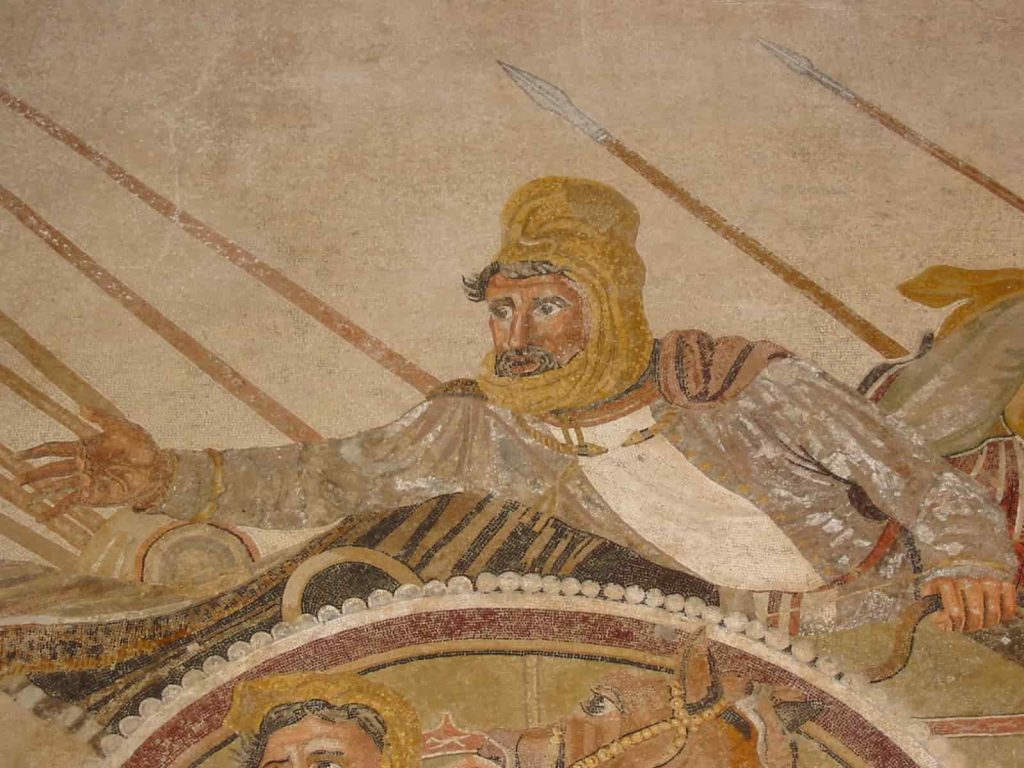
In 334 BC, he crossed the threshold of the Achaemenid Empire and initiated an extensive expeditionary campaign that continued for 10 years. After the Lex the Amphipolis, Alexander’s subsequent major victory was over Darius III, which enabled him to undermine the regime of Achaemenid Persia. As a result, he took the throne and ruled over the whole of the Achaemenid Empire.
As soon as the Persian empire fell, the Kingdom of Macedon assumed control over a very large expanse of land, which is delimited by the Adriatic Sea to the west, all the way to the Indus River to the East. Alexander’s ambition was to reach the “limits of the earth” and the Great Sea, and in 326 B.C., he moved on to India. From here, he won a significant victory over Porus, a historic Indian king who ruled in present-day Punjab, during the Battle of the Hydaspes.
Due to the mutiny of his homesick troops, he eventually turned back at the Beas River and later died in 323 BC in Babylon, the city of Mesopotamia that he had planned to establish as his empire’s capital. His death left unexecuted an additional series of planned military and mercantile campaigns that would have begun with a Greek invasion of Arabia.
How did Alexander Die?
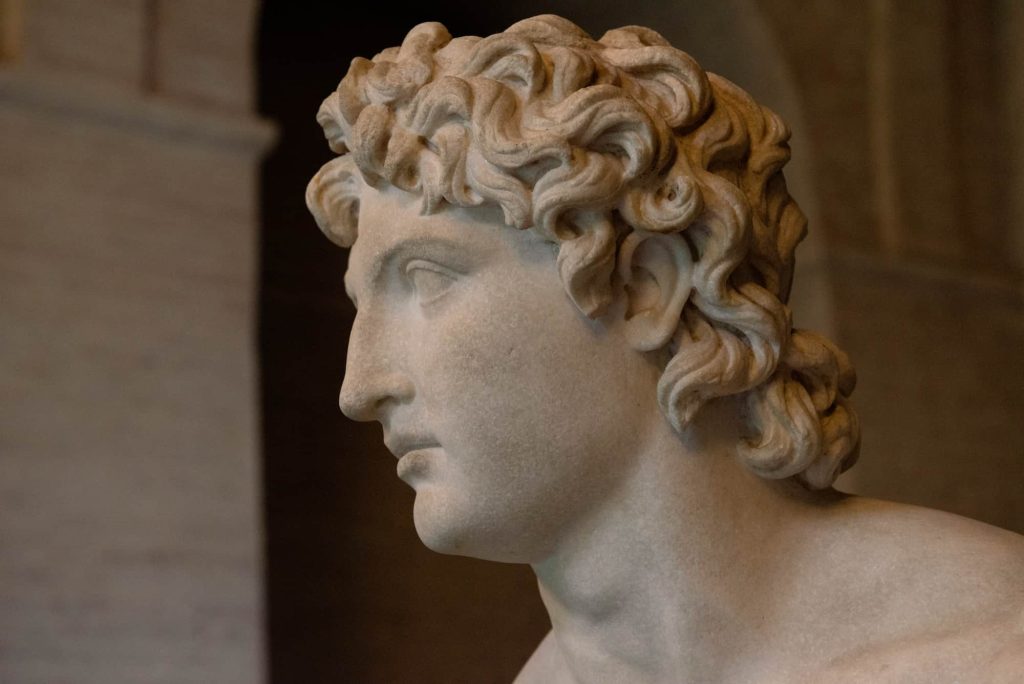
Alexander
While in Babylon, Alexander became ill after a prolonged banquet and drinking bout. Then on June 13, 323, he died at age 33. There was much doubt about the cause of death. The most popular theories claim that he either contracted malaria or typhoid fever, or that he was poisonous.
Conclusion: A unique historical mentality
An ancient ruler from Macedonia, he is among the renowned military tacticians that the world has ever had due to the remarkable rise of the greatest empire. Unfortunately, Alexander The Conqueror passed on before his vision for a happy and peaceful world could be achieved, but in a way, he drastically impacted Greek culture and civilization politics.
Even as the king of ancient Macedonia for only 13 years, Alexander influenced history. One of the most successful military leaders of all time, he overpowered most of the world with his huge kingdom from Macedonia all the way to Egypt and a part of India. Hellenistic culture was thus universalized.
.

